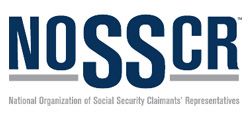October 30, 2025
Applying for workers compensation can be a complex and daunting process. Having the right questions in mind can help you navigate the system more effectively and ensure that you receive the benefits you deserve. This article will guide you through the essential questions to ask when applying for workers compensation. Understanding these core questions will help you prepare, apply, and appeal when necessary. Let's delve into the critical aspects of workers compensation to ensure you optimize your benefits.
1. What Are the Eligibility Criteria for Workers Compensation?
Understanding Covered Injuries
Eligibility for workers compensation often hinges on the nature and cause of the injury. Most injuries sustained at the workplace or while performing job-related duties are typically covered. However, it is pertinent to differentiate between injuries caused by accidents and those resulting from negligence or non-compliance with safety protocols. Understanding what counts as a work-related injury can significantly impact your claim's success. Hence, it is essential to document the circumstances surrounding your injury thoroughly.
Additionally, knowing which injuries do not qualify for compensation is equally crucial. Sometimes, injuries from alcohol consumption or self-infliction may not be eligible. Misunderstanding this can result in unnecessary claims and subsequent denials. Educating yourself on these specifics can save time and effort. It prepares you to present a more compelling case from the onset.
Determining Employment Status
Another critical eligibility criterion pertains to your employment status. Most compensation systems require that the injured party be a bona fide employee. This condition excludes volunteers, independent contractors, and certain trainees unless specific exceptions apply. Understanding this can help you hold realistic expectations regarding your eligibility status. Being classified correctly ensures that problems related to coverage can be minimized.
It is also important to check your employer's insurance policy for any specific employment requirements. Although rare, some policies may insist on a minimum employment period for eligibility. Additionally, scenarios like layoffs, seasonal work, or probationary periods might carry specific clauses regarding eligibility. To reduce the chances of a denied claim, clarify these employment classifications with your employer or legal advisor early in the process.
Knowing the Filing Timelines
Timelines play a crucial role in determining eligibility. Each jurisdiction sets specific deadlines for filing a workers compensation claim. Missing these deadlines could lead to the dismissal of your claim, regardless of its merits. Therefore, knowing when to file is as essential as knowing the eligibility criteria. If you find the timeline overwhelming, consider seeking legal help to ensure you meet all deadlines.
Furthermore, varying laws across different states complicate these timelines further. Some states provide up to a year for claim submission, while others may give only up to 30 days. Being on top of the deadlines reduces stress and supports you in obtaining the compensation you're entitled to receive. Document every step you take to ensure you meet these timelines effectively.
2. What Benefits Am I Entitled To?
Medical Expense Coverage
The crux of workers compensation benefits revolves around medical expense coverage. It covers the cost of necessary medical treatments stemming from the work-related injury. This provision ensures that financial constraints do not hinder an employee's recovery process. It encompasses anything from minor treatments to major surgeries, as mandated by the attending healthcare provider. Always consult your provider about which treatments are covered to avoid out-of-pocket expenses.
Aside from immediate treatment, future medical needs related to your injury may also be covered. This ensures ongoing care, preventing any premature cessation of necessary treatments. However, you should maintain records and comply with recommended treatments to maximize this benefit. Unmaintained records or ignored prescription advice can result in denied claims for further medical expenses. Understanding these dynamics can ensure more comprehensive coverage.
Temporary Disability Benefits
The provision for temporary disability benefits stabilizes an injured worker's finances during the recovery phase. Injured workers receive two-thirds of their average weekly wage for temporary total disability, initially 72% for the first 12 weeks, according to Reuters. This financial relief becomes pivotal, especially when you're unable to perform your regular duties. While the amount may not equal your full salary, it sustains you during an unpredictable recovery period. Hence, comprehending the limitations and timeline of this benefit is critical.
Temporary disability benefits are how most jurisdictions ensure continuity of support. It is vital to understand that proof of incapacity, usually via medical certification, is needed to access these benefits. Precise documentation of your inability to resume work is crucial in securing this benefit. Thus, clear communication with healthcare providers can optimize your temporary disability benefits. Ensure you report changes in recovery status immediately to continue receiving these benefits effectively.
Permanent Disability Benefits
Permanent disability benefits tackle long-term incapacities, assuring financial stability. This benefit aims to assist those who cannot fully recover and return to their previous work capabilities. Calculating these benefits can be complex, often expressed as a percentage relative to your disability extent. Therefore, understanding the degree of disability and its impact on compensation is essential. In some cases, legal assistance becomes indispensable to navigate these complexities.
Permanent disabilities may not always be apparent initially, necessitating periodic medical evaluations. This ensures that any long-term impact of injuries receives appropriate compensation. Keeping regular appointments and maintaining up-to-date medical records is important for receiving adequate permanent disability benefits. Even when appealing for these benefits, solid documentation strengthens your case. Engage with attorneys specializing in workers compensation to ensure a smoother process.
3. How Do I File a Workers Compensation Claim?
Reporting the Injury to Your Employer
Timely reporting of your injury to your employer is the first and crucial step in filing a workers compensation claim. This notification sets the process in motion, enabling formal documentation of the incident. Employers typically have a protocol for accident reporting that must be adhered to. Immediate or same-day reporting is often advisable to align with legal stipulations. Delay in reporting can lead to discrepancies in your account and may weaken your claim.
Ample communication between the employee and employer is necessary for accurate injury portrayal. This includes detailing how, where, and when the injury occurred. Comprehensive incident reports serve as crucial elements in examining the claim's legitimacy. Ensure you maintain a copy of all reports submitted to sustain an organized documentation trail. Consult with employee representatives if necessary to ensure the claims process is not hindered by incomplete reporting.
Gathering Necessary Documentation
Comprehensive documentation supports every phase of the workers compensation claim. Essential documents include incident reports, medical records, witness statements, and employer communications. Collecting these documents systematically ensures you possess rigorous evidence to substantiate your claim. Poor or incomplete evidence often leads to delays, making meticulous documentation indispensable. Comprehending what documents are essential aids in forming a strong claim from the start.
Documenting each interaction or development within the compensation process is vital. Not only does it aid in presenting evidence, but it also helps to resolve discrepancies. Meeting the documentation standards specified by workers compensation boards strengthens the claim's credibility. In complex cases, engaging legal advisors can simplify this documentation process significantly. Their expertise can pinpoint missing information and suggest additional evidence crucial for claim success.
Completing and Submitting the Claim Form
Completing and submitting the claim form is a fundamentally critical step. Accuracy and detail are paramount to prevent claim rejections or delays. Accommodating jurisdictional requirements that vary between states adds complexity to this process. Thus, knowing what specific forms must be filled out will guide you correctly. However, legal terminology and form complexity can be daunting without professional help.
Submitting forms requires proof of authenticity and sometimes notarization. Legal advisors can assist in ensuring compliance with all legal requirements. Submitting these forms on time, often alongside the injury report, officially starts the compensation process. Timeliness in this phase markedly affects the speed and success of claiming benefits. Missteps in submission lead to setbacks, often deterring rightful compensation seekers.
4. What Should I Do If My Claim Is Denied?
Understanding Reasons for Denial
Facing a denied claim can be frustrating, but understanding the reasons is the first step toward resolution. Common denial reasons include lack of proper documentation, untimeliness, or disputes over injury causes. Dissecting the denial letter is crucial for identifying points of contention. While appeals are available, they consume time and resources, making preliminary understanding essential. This analysis ensures that remedial measures can specifically target the issues raised.
Analyzing the denial aids in determining the necessary corrective actions. Often, paperwork deficiencies or missed steps account for claim rejection. Understanding what went wrong is integral in crafting a more solid case for appeal. Legal aid, in such situations, can interpret complex denial terms and identify the necessary steps forward. Comprehending denial reasons transforms frustration into actionable insights.
Appeal Process Overview
Knowing the appeal process is pivotal once your claim has been denied. Understanding the timeline for filing an appeal, often limited, ensures your case proceeds. Effective appeals require thorough understanding and often, enhanced documentation. Engaging an attorney becomes crucial not only for navigating formality but understanding appeal criteria. Each stage in the appeal process demands timely responses and adherence to specific guidelines.
An appeal generally requires the submission of a formal appeal letter, explaining the reasons you believe the denial was incorrect. Provide supplemental documentation that addresses the original rejection points within this letter. Legal representation ensures that all legal technicalities for proper appeal handling are adhered to. Meeting these requirements enhances the appeal's success probability. Choosing to re-file with enhanced information is also an option when initial appeals prove unsuccessful.
5. How Can I Ensure My Rights Are Protected?
Knowing Your State's Laws
Each state's workers compensation laws presents unique stipulations regarding employee rights and protection. Familiarizing yourself with state-specific laws ensures you know the rights you're entitled to. This knowledge prepares you for any discrepancies or violations during compensation procedures. Lack of awareness often leads to overlooked benefits, heightening the risk of reduced compensation. Comprehensive knowledge arms you responsibly against potential legal mishaps.
State laws typically outline the processes and timeframes for claim filing and dispute resolutions. Understanding these legal stipulations prevents procedural mishaps. Continuous engagement with state-specific resources can keep you informed and prepared. Legal advisors excel in breaking down complex state policies for easy comprehension. Leverage these resources for a safeguarded and protected claim journey.
Maintaining Accurate Records
Accurate record maintenance is a powerful tool for safeguarding your rights. Each transaction or communication related to the claim deserves accurate documentation. This provides a constructed narrative for validation and reference when needed. Inconsistent documentation often leads to disputes that potentially undermine successful compensation. Knowing the importance of record accuracy ensures efficient protection of your rights.
Records should include dates, times, correspondences, and observations related to your case. Incomplete or inaccurate records may invalidate your claims or lead to disputes. Review all documents both internally and externally to ensure alignment and accuracy. Legal representatives serve as adept guides in maintaining record consistency for optimal claim assessments. Let your records be evidence that ensures your lasting rights protection within compensation proceedings.
6. What Are the Potential Challenges I May Face?
Delays In Benefit Payments
One predominant challenge in workers compensation is delays in benefit payments. Structural inefficiencies and increased claim loads could prolong your benefit reception. Delays necessitate comprehensive planning to manage financial difficulties during the interim. Understanding these delays and planning accordingly ensures financial stability while awaiting compensation. Acting proactively by keeping Form SSA in place is advisable for managing unforeseen hold-ups.
Dispute resolutions, if involved, prolong these delays, adding complications to the compensation process. Preparing for potential delays financially safeguards you during these periods. Communication with the involved parties keeps you informed of your claim's progress. Your legal representatives might expedite these delays through proper channel access. Always prepare for potential financial impacts during expected and unexpected delays.
Disputes Over Injury Causation
Disputes concerning what caused your injury frequently occur and prolong compensation processes. Miscommunications or inadequate documentation of injury circumstances often trigger these disputes. Presenting comprehensive factual evidence surrounding your injury minimizes disputation risks. Unresolved disputes require arbitration, potentially delaying compensation access. Streamlining records and documentation greatly mitigates the risks associated with injury causation disputes.
Ensure that the evidence submitted supports your claims factually. Consider engaging third-party medical examinations for unbiased injury assessment. Neutral medical evaluations offer substantial proof supporting your causation claim. Expect to face challenges with opposing medical assessments potentially delaying case resolutions. Adequate preparations and legal representation streamline any disputes over injury causation.
Applying for workers compensation requires careful attention to detail and an understanding of the process. By asking the right questions, you can better position yourself to receive the benefits to which you are entitled. Navigating complexities ensures alignment with protocols for optimal compensation receipt. Remaining informed and proactive prepares you for hurdles that might affect your application. Always seek professional advice if you're uncertain about any aspect of your claim. If you need help with workers compensation, contact Marshall Grinder Debski Pitts today.








